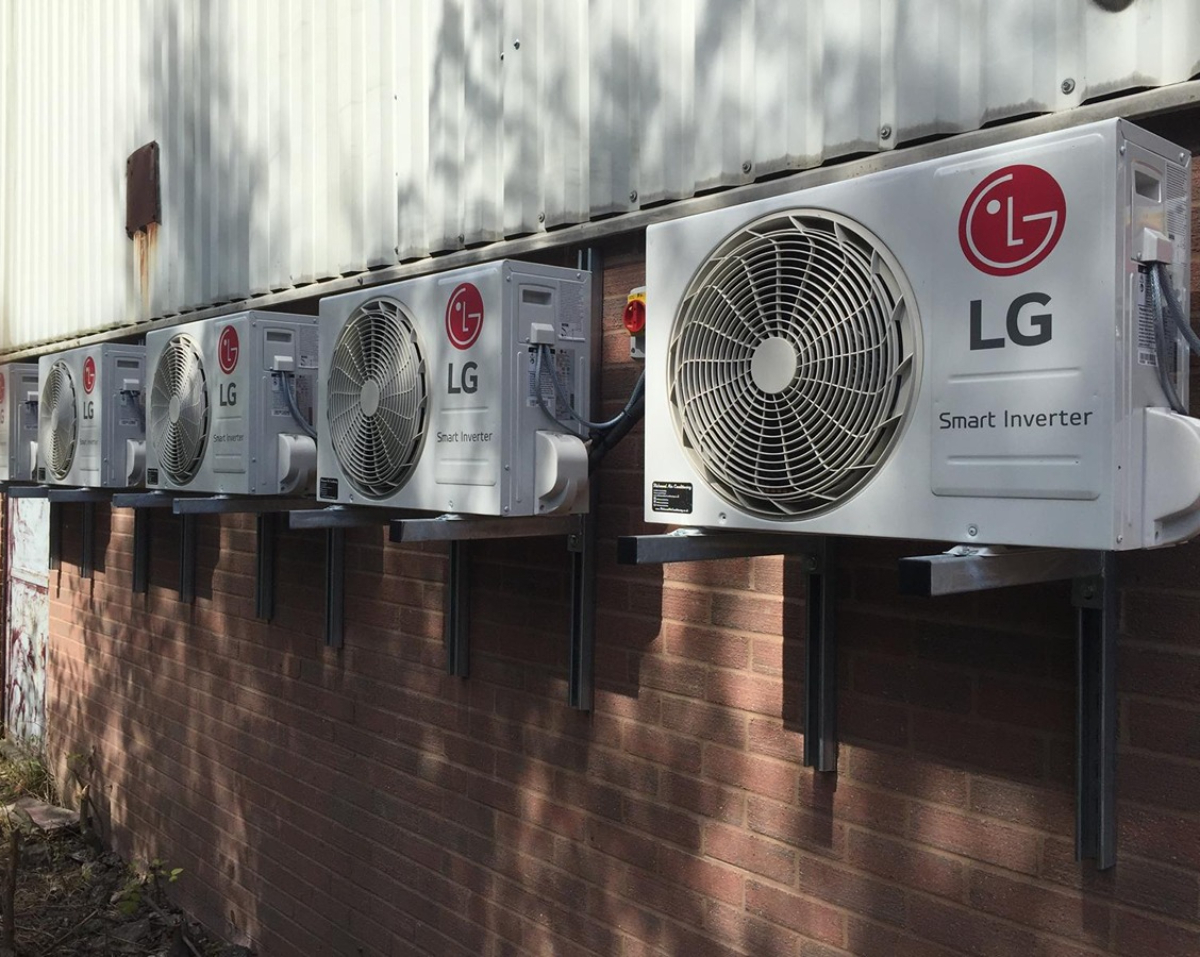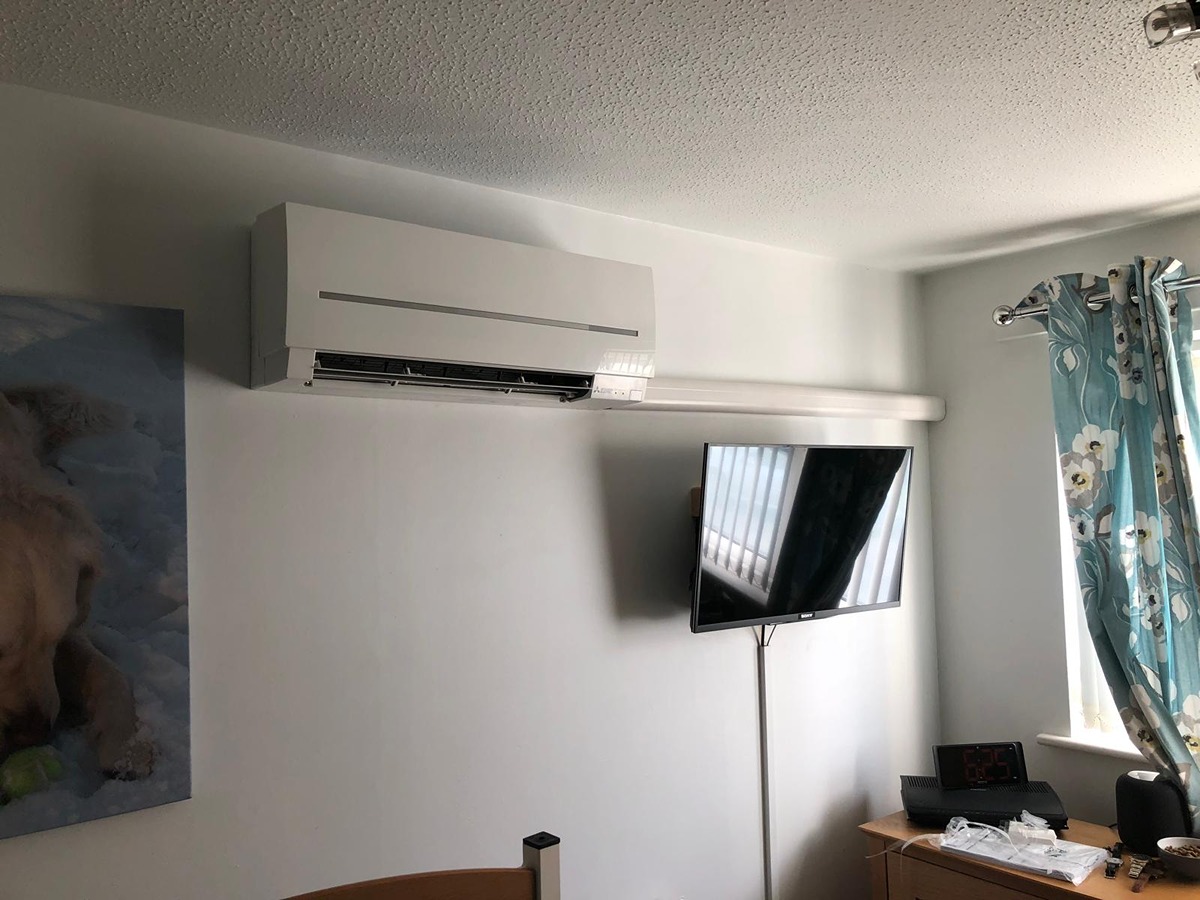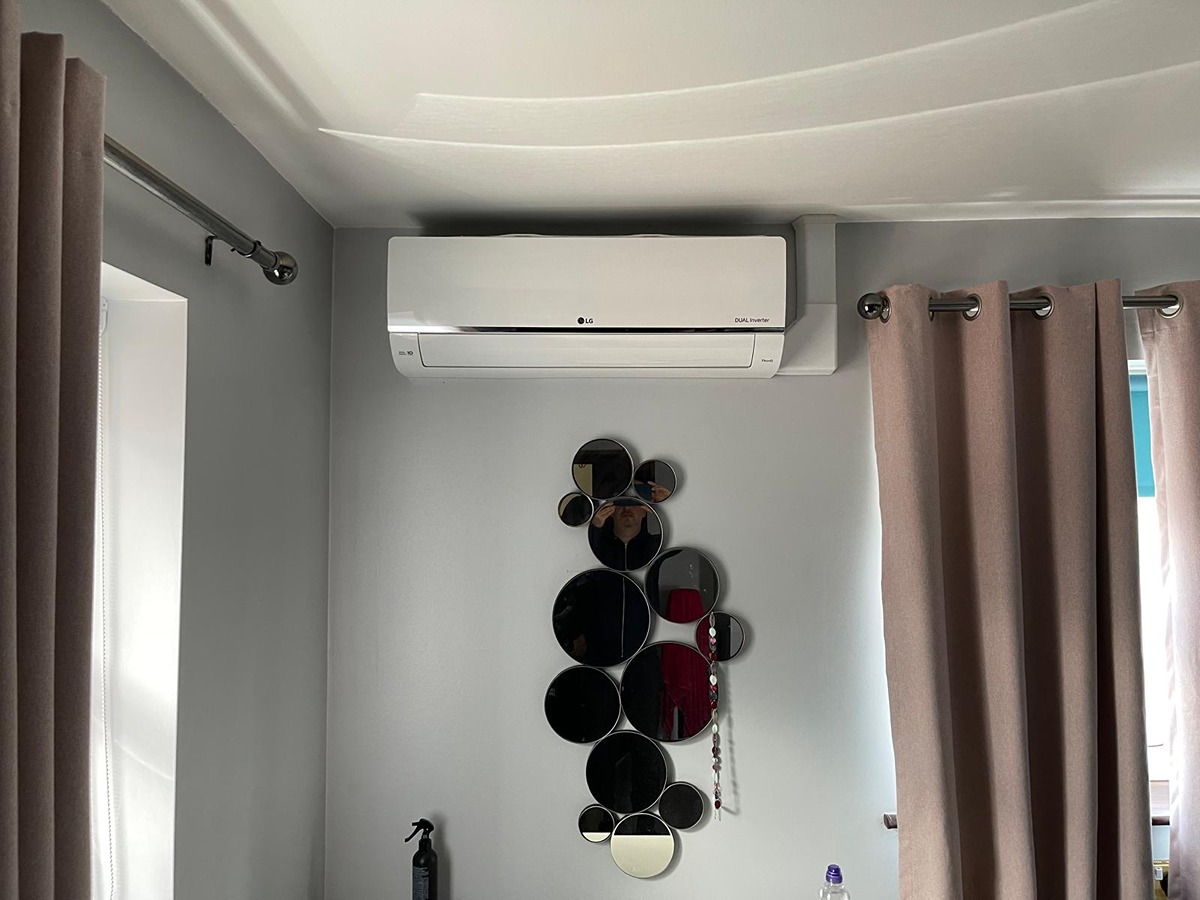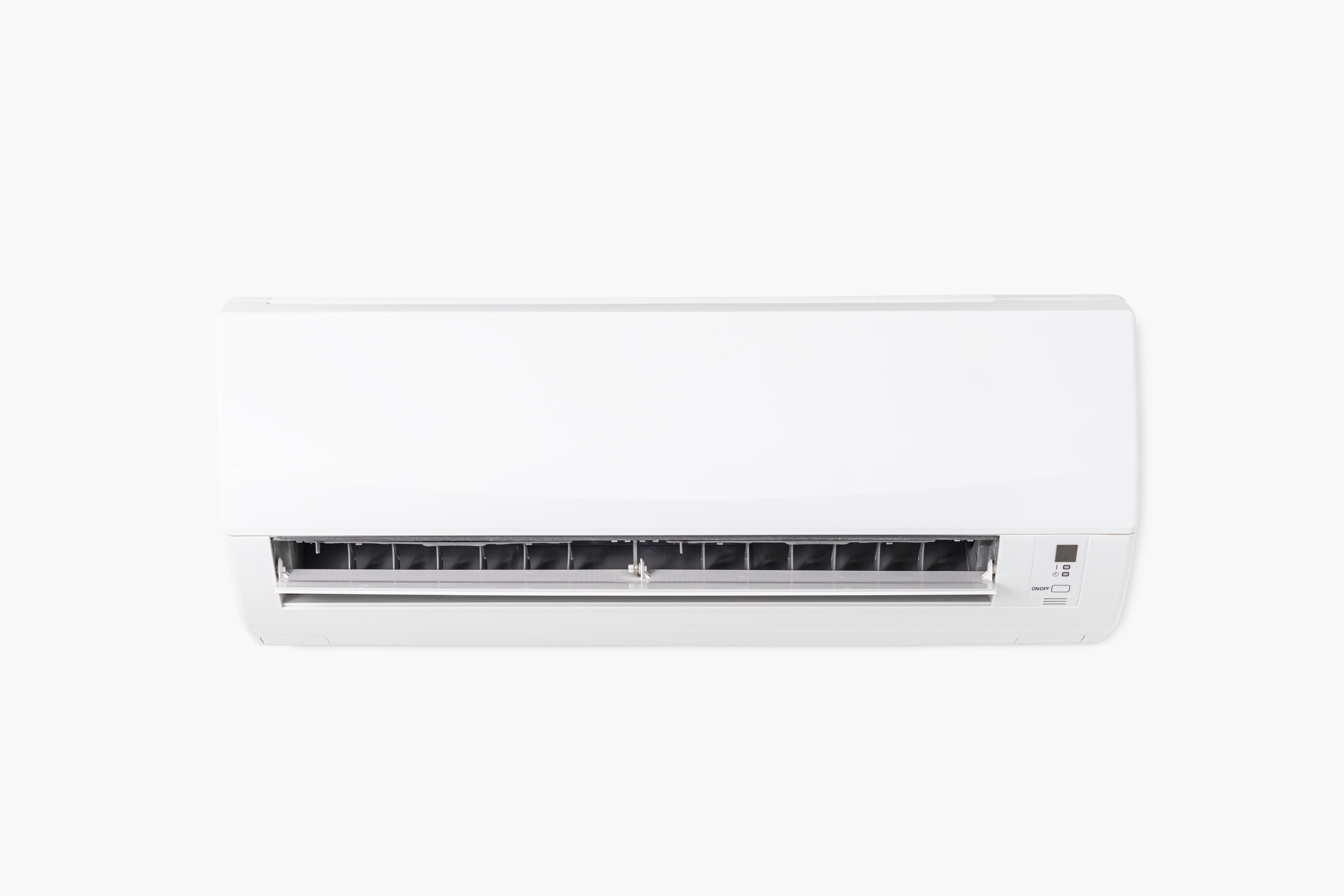Understand the importance of air conditioning in a child's bedroom for comfort and safety. Learn how it helps regulate temperature, improve sleep quality, and maintain healthy air conditions by reducing humidity and filtering out allergens.
Air Conditioning Can Help Stop Babies And Children From Overheating
Air conditioning is vital in a child's room as it helps maintain a stable body temperature, particularly during summer. Excessive heat and humidity can make a bedroom uncomfortable, posing a risk of overheating for infants and children. An air conditioner ensures that a child's room remains cool and comfortable, helping them sleep throughout the night.
Overheating in babies and children can lead to various problems. Overheating disrupts the child's sleep and can increase the risk of sudden infant death syndrome (SIDS) in babies. By adjusting the air conditioning to a suitable temperature, parents can reduce these risks and provide a safer environment for their children.
Air conditioning also ensures that cool air is distributed evenly throughout the room. An air-conditioned room allows babies and children to sleep comfortably without sweating or feeling sticky. This comfortable environment encourages longer and deeper sleep, which is crucial for their growth and development. Proper sleep helps children recharge and remain active and alert during the day.
Air conditioning can also help filter out pollutants and allergens in the air. Clean air reduces the likelihood of respiratory issues developing and helps the child breathe better. Therefore, air conditioning in a baby's room is more than a luxury; it can help keep your child healthy.
Air Conditioning Can Filter Out Bad Air
Air conditioning plays a crucial role in making the air in a child's room healthy and clean. This can be particularly important if your child is prone to allergies or asthma. Modern air conditioning systems come with filters that capture pollutants like mould spores, dust mites and other allergens. These pollutants can accumulate in the air and can potentially cause or worsen respiratory issues.
Air conditioners can reduce the risk of health issues forming by providing a cleaner air supply. For air conditioning systems to effectively filter pollutants, regular maintenance must be performed. These filters capture harmful particles and prevent them from recirculating through the air. This creates a cleaner and healthier atmosphere that supports a child's growth and development.
When the doors and windows of a room are shut, air conditioning systems circulate the air and purify it. This function is vital in a child’s room, especially for babies and young children who are more sensitive to changes in their environment. Airborne allergens can cause severe discomfort and lead to many health issues - therefore, having clean air is crucial.
Air conditioners also help control the humidity in a room. Excess humidity in a room can lead to mould growing and festering. These organisms can compromise the air quality and lead to respiratory problems in children. By reducing humidity, air conditioning systems prevent mould and mildew from growing and maintain a clean and dry environment for your child. By filtering these pollutants out, air conditioning creates a space where your child can comfortably play, study, and relax. This helps in creating a positive environment for their cognitive and emotional development.
The use of air conditioning in a child's room goes beyond just cooling the room. Stagnant air can lead to carbon dioxide and other pollutants building up over time, which can cause headaches, nausea, fatigue and other issues. By creating better airflow, air conditioners create a healthier environment that supports the physical health of your child.
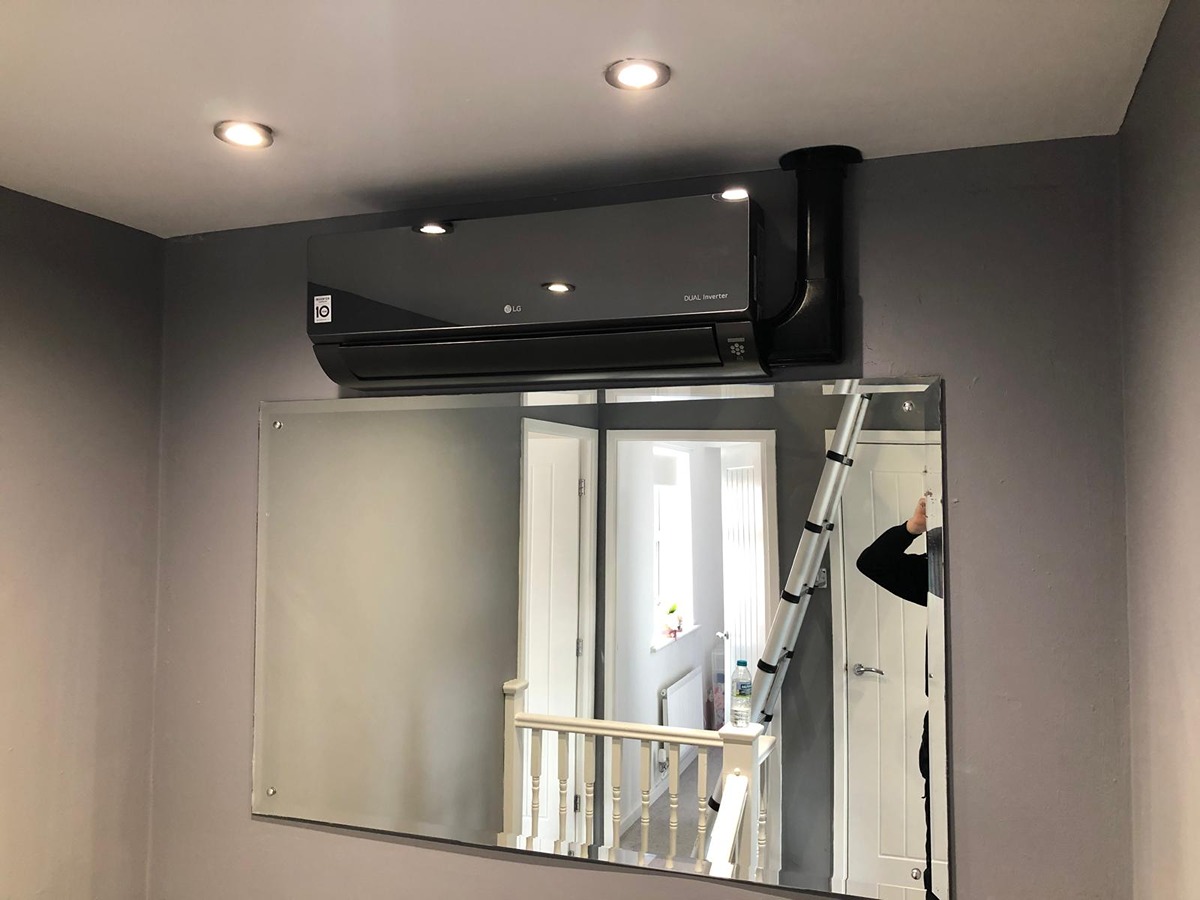
Air Conditioning Can Help Children With Dermatological Issues
Many children experience dermatological issues like eczema, which can become worse when paired with overheating or high humidity. An air-conditioned environment can provide a cool, dry space that reduces the irritation and itching caused by skin conditions. Maintaining a consistent and comfortable temperature is key to making the skin less reactive to environmental triggers.
Control over humidity is also crucial. While dry air can lead to skin problems, air conditioning systems also help the air from becoming too dry; allowing the skin to stay hydrated. This balance is vital for children dealing with skin conditions, as it ensures their skin remains moist and less prone to flare-ups. The ability to regulate the room's temperature gives parents the opportunity to create an environment where their children feel at ease. Using air conditioning in a child’s room does more than just keep them cool; it helps them manage any dermatological issues.
Moreover, a well-conditioned room can also lead to a better night's sleep, which is essential for your child's health and well-being. When children aren't disturbed by itching or discomfort, they're more likely to sleep better. Therefore, an air conditioning system helps provide a comfortable living space that supports the management of dermatological conditions and helps children enjoy a better quality of life.
The AC Can Help Facilitate Better Sleep
Air conditioning in a child's room can help them sleep better, which is important for their well-being and development. The main advantage of having air conditioning in a child's room is its ability to create a consistent, comfortable sleeping environment. Children and babies have delicate sleeping needs, and maintaining the right room temperature can influence their quality of sleep. An air-conditioned room provides a stable, cool climate, which is essential for a good night's sleep. When the temperature is too hot or too cold, children can have restless nights and disrupted sleep.
During sleep, a child's body temperature drops slightly, and having a room with steady air conditioning supports this natural process. The right settings can help children fall asleep and stay asleep during the night. By preventing substantial temperature changes at night, air conditioners contribute to uninterrupted rest. A cool, air-conditioned room ensures children are comfortable and reduces the likelihood of them waking up due to overheating.
When children sleep well, they wake up refreshed; leading to an improved mood and better focus during the day. Air conditioning plays a vital role in sustaining a healthy sleep routine and supporting a child's growth, development, and day-to-day mood.
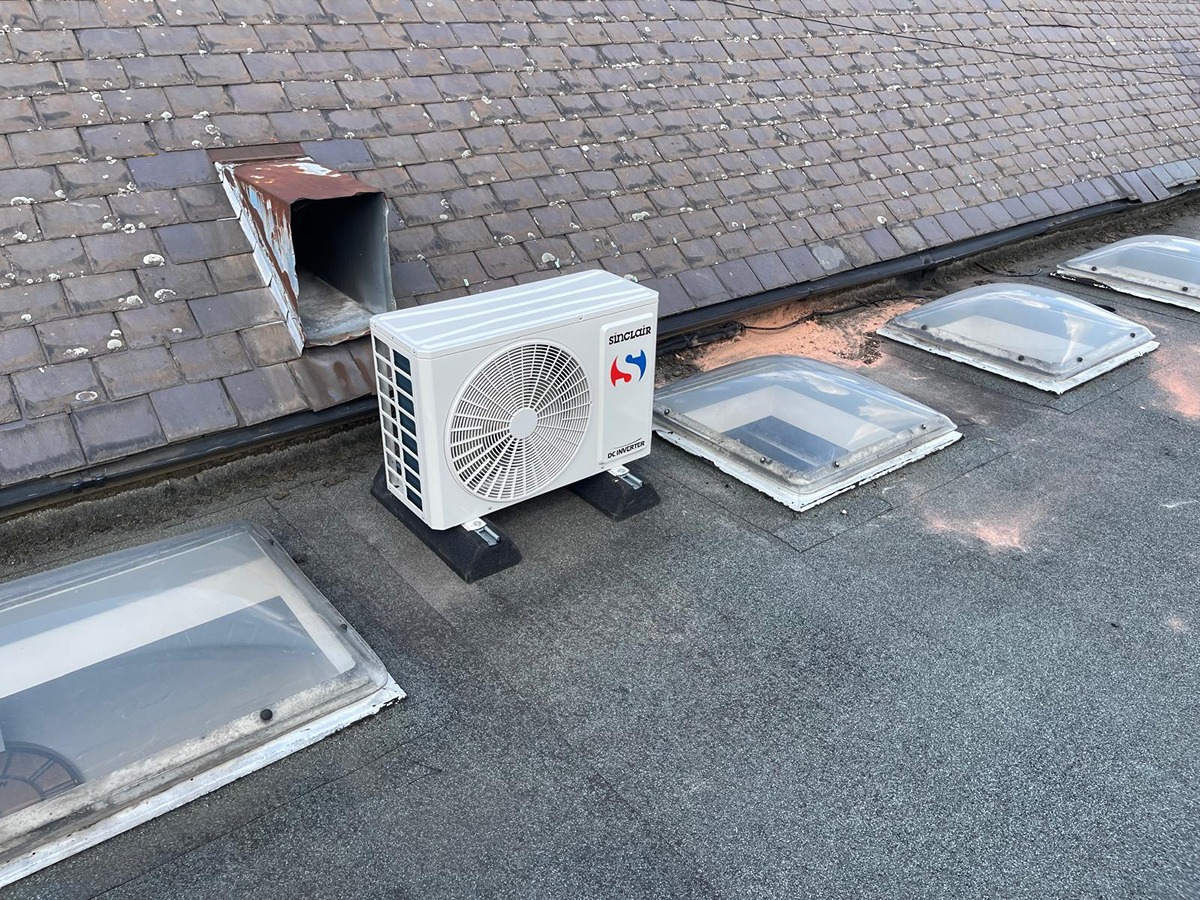
Tips To Keep In Mind
Installing air conditioning in a child's bedroom can enhance their comfort, but there are important considerations to keep in mind to ensure it’s used effectively. Firstly, setting the correct temperature is crucial. A room that is too cold can be just as uncomfortable as one that's too hot, and it may impact your child's sleep quality. Aim to keep the temperature at around 20-22°C, which is generally considered a comfortable range for children.
Regular maintenance of the air conditioning system is also essential. Ensure that the filters are frequently checked and cleaned so that clean, fresh air can circulate around the room. Dirty filters can lead to the build-up of allergens and dust, which can affect your child's health and cause respiratory issues. Simple maintenance tasks can reduce these risks and ensure the system works efficiently. While air conditioning is beneficial, it’s also important to not rely on it continuously.
Introducing fresh air by opening windows or doors can help maintain a healthy circulation of air and reduce the room's stuffiness. This blend of natural and conditioned air can create a more balanced environment and improve the overall air quality. However, air conditioners can sometimes dry out the air, which can negatively impact your child’s skin and respiratory health. Using a humidifier can help counteract dryness caused by air conditioning and maintain a balanced humidity level.
Finally, regularly monitor your child's health and comfort levels, especially during changing weather conditions, and adjust the air conditioning settings as needed. This adaptability ensures the room remains comfortable and supports the child's well-being - allowing parents to use the air conditioning system efficiently and responsibly.
By setting the right temperature, introducing fresh air, monitoring humidity, and taking care of the air conditioning system, parents can create a comfortable and healthy environment for their children.
If you're looking for advice on domestic air conditioning installation or need assistance with your current system, our team is here to support you. Contact us today to discuss your options and find the best solution for keeping your home comfortable all year round.
